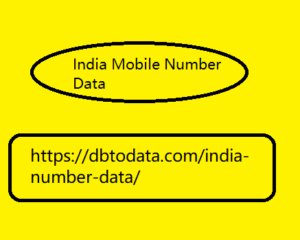Post by account_disabled on Mar 11, 2024 22:21:21 GMT -5
Together with Giorgio Taverniti we discover why "the voice is not the present... it already is". Let's start from this phrase to get to concepts such as the push of the big names in technology towards the world of health, voice search, deepfakes and much more. Alessio Pomaro Alessio Pomaro May 3, 2021 •2 min read Present and future of Voice Technology: interview with Giorgio Taverniti In this episode of Voice Technology I invited Giorgio Taverniti to discuss the present and future of the world of voice.
The voice is not the present.. it already is! Let's start from this phrase, which is also the title India Mobile Number Data that Giorgio gave to the preface of my book , to get to concepts such as the push of the big names in technology towards the world of health , voice search on the web, deepfakes and social audio , from Clubhouse to Telegram, up to the importance of communities. The full podcast and video interview The following is the complete podcast episode, with the video part of the interview inside. Present and future of Voice Technology with Giorgio Taverniti The highlights 00:26 What's in the future of Voice Technology? 00:49 Presentation by Giorgio Taverniti 01:25 “The voice is not the future, it already is”.. what does it mean? 02.27 Big names in technology + AI + voice technology + health 05.10 Voice search and voice in the world of the web 07.24 Deepfake and reproduction of voices, MateDub , dubbing 12.11 Social Audio: present and future 2.56pm Experiences on voice technology (marketing and disability) 8.15pm Take Away Take Away A small summary of the concepts that emerged in the episode.

Health is one of the most important markets of all in the digital sector, which the big names in technology don't want to miss! This is why applications based on Artificial Intelligence and Voice Technology are increasingly being created in the healthcare sector . Thanks to voice technology, thanks to digital assistants, we will probably be able to count on increasingly accessible content . Deepfake should certainly be experimented with because it is a useful tool, but it must be regulated because it undermines credibility ... and probably in the future digital contents will be " signed " to certify that they were created by a specific person. The audio-only social environment is a " tiring " environment, so those that also offer audio, for example Telegram or Twitter, will probably be more successful .
The voice is not the present.. it already is! Let's start from this phrase, which is also the title India Mobile Number Data that Giorgio gave to the preface of my book , to get to concepts such as the push of the big names in technology towards the world of health , voice search on the web, deepfakes and social audio , from Clubhouse to Telegram, up to the importance of communities. The full podcast and video interview The following is the complete podcast episode, with the video part of the interview inside. Present and future of Voice Technology with Giorgio Taverniti The highlights 00:26 What's in the future of Voice Technology? 00:49 Presentation by Giorgio Taverniti 01:25 “The voice is not the future, it already is”.. what does it mean? 02.27 Big names in technology + AI + voice technology + health 05.10 Voice search and voice in the world of the web 07.24 Deepfake and reproduction of voices, MateDub , dubbing 12.11 Social Audio: present and future 2.56pm Experiences on voice technology (marketing and disability) 8.15pm Take Away Take Away A small summary of the concepts that emerged in the episode.

Health is one of the most important markets of all in the digital sector, which the big names in technology don't want to miss! This is why applications based on Artificial Intelligence and Voice Technology are increasingly being created in the healthcare sector . Thanks to voice technology, thanks to digital assistants, we will probably be able to count on increasingly accessible content . Deepfake should certainly be experimented with because it is a useful tool, but it must be regulated because it undermines credibility ... and probably in the future digital contents will be " signed " to certify that they were created by a specific person. The audio-only social environment is a " tiring " environment, so those that also offer audio, for example Telegram or Twitter, will probably be more successful .


